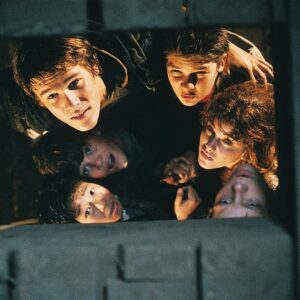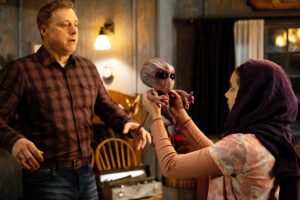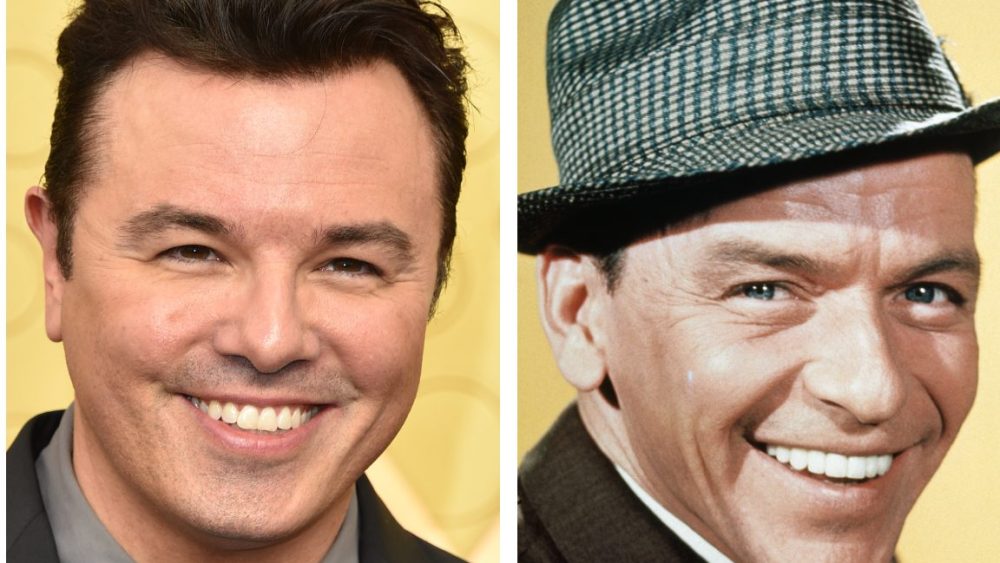Seth MacFarlane‘s new album “Lush Life: The Lost Sinatra Arrangements,” released today on Republic/Verve, finds the singer and “Family Guy” creator back in Frank Sinatra territory — not only in a similar vocal vein but utilizing arrangements written for Ol’ Blue Eyes that were never performed or recorded.
MacFarlane, the actor-animator-director-singer and creator of “Family Guy,” became the steward of more than 1,800 charts written for Sinatra (from the early 1950s to the early ’90s) after the 2016 death of his son, Frank Sinatra Jr. The younger Sinatra had appeared on “Family Guy” and become friendly with MacFarlane; Tina Sinatra put MacFarlane in charge.
“What we found,” says MacFarlane, “were all of the classic charts we know and loved, but we also found a number that he had never recorded, many of them from the golden era of the late 1950s and early 1960s. There were enough of these unrecorded charts to sustain an entire album”— nearly 100, he estimates.
Many of these were the work of some of the most renowned arrangers of the 20th century: Nelson Riddle, Billy May, Don Costa (all of whom are represented on the new album) plus Gordon Jenkins, Johnny Mandel, Quincy Jones, Neal Hefti and others. All were masters at crafting musical settings for top singers, including Ol’ Blue Eyes.
“Throughout his career,” says Charles Pignone, president of Frank Sinatra Enterprises, “Frank collaborated with the best arrangers, the best musicians, the best talents. Some of those songs would not be standards today if they weren’t done the way Frank and the arrangers envisioned them.” (Steve Lawrence once contended that “if Riddle, May and Costa were living in the 17th or 18th century, they would have been Mozart, Brahms and Beethoven.”)
MacFarlane recounts some of what he discovered: “There’s a Nelson Riddle arrangement of ‘Shadow of Your Smile’ written in the early ’60s. There’s a song called ‘Shadows’ that was written for the album ‘Moonlight Sinatra’ and was ultimately cut from that record that no one has ever heard before.”
In order to hear these previously unknown arrangements, MacFarlane and producer Joel McNeely assembled an orchestra on the Fox recording stage in 2019. They played through an estimated 60 or 70 of these tunes over two days. “And it was really exciting because each of these arrangers had such a specific sound all their own,” MacFarlane says.
In the case of Billy Strayhorn’s jazz standard “Lush Life,” Sinatra actually started, but never finished, recording Riddle’s sophisticated arrangement in 1958. “Put it aside, for about a year,” Sinatra quipped upon deciding to give up.
“There are a lot of tempo changes, stylistic changes, in that chart,” MacFarlane notes. “All of us are great admirers and de facto scholars of the work of these arrangers, and so we were able to make pretty confident guesses as far as how Riddle would have conducted this. So that song was a no-brainer” for inclusion on the new album.
“Shadows” and “Who’s in Your Arms Tonight” were other songs penned for Sinatra, again with Riddle arrangements, that he skipped; MacFarlane debuts both on the new album. Two more, “How Did She Look?” from 1958 and “When Joanna Loved Me” from 1977, were melancholy Riddle charts that Sinatra chose not to record.
“Both charts are Riddle at his peak,” MacFarlane says. “He’s my personal favorite of Sinatra’s arrangers. That almost classical style in which he writes, so wonderfully rubato, never really locked to the tempo, and really depends on singing with the orchestra right there in the room.”
After hearing the arrangements and making preliminary choices for potential albums, MacFarlane called London conductor John Wilson, whose Sinfonia of London has become a staple of the BBC Proms and which has done numerous concerts of “Golden Age of Hollywood” music.
Wilson, with 25 of his best London players, flew to Los Angeles in August 2023, where they joined another 65 Los Angeles players in three days of rehearsals. Then, as if on tour, all of the musicians were bussed to Skywalker Sound in Lucas Valley, near Nicasio, Calif., where they recorded over three days with Wilson conducting and McNeely producing. “There was this wonderful chemistry that happened [with all the musicians],” McNeely says. “It was just so joyful.”
MacFarlane is a big fan of the Great American Songbook era. “All of these great songs being written, some of the best orchestrations ever written for popular music, not just for albums, but for the movies as well,” he says.
“You hear it in Sinatra’s ballad charts. These orchestrations are concert-worthy. A classical orchestra would have to be on their toes to play a lot of this stuff. There was a real unity of artistry that was prevalent at the time, that I think has kind of faded over the years.”
MacFarlane and McNeely asked JoAnn Kane Music, a top music-preparation company, to carefully restore and digitize the entire collection. Owner Mark Graham estimates the organization, scanning and restoration process took “three or four years.”
Adds MacFarlane: “The physical charts are precious on their own, so we’re doing everything possible to make sure that they don’t deteriorate and kept in the best possible condition. Some have the arrangers’ handwritten notes on the chart itself, and that gives you some kind of clue as to how they’re supposed to be played. Just as artifacts, as pieces of history in their own right, played or not, they must be preserved.”
Read the full article here








